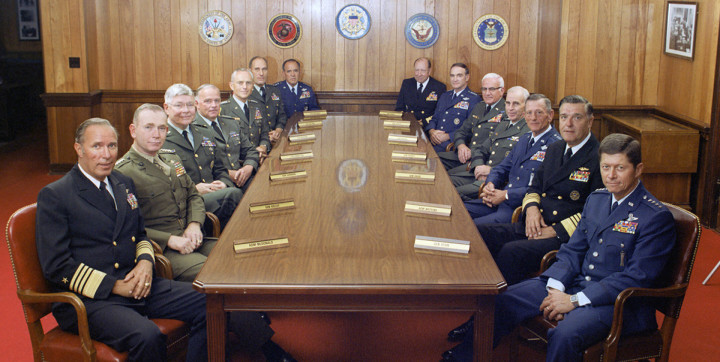Despite its provocative title, Michael Moore’s latest finds the filmmaker in an uncommonly cheerful and noncombative frame of mind — something that will not matter to Moore’s staunchest detractors. (I have never seen such an outpouring of hate than that which has sprung up in the comment sections of news reports on Moore’s current hospitalization for pneumonia, most of it from people hoping for his death. And all from the vantage point of safely anonymous screen names, of course.) The title Where to Invade Next is deceptive. The film has little, if anything, to do with our propensity to invade other countries and engage in conflicts, though a montage at the beginning suggests this is what we’re about to see. But, no, that merely plays to our expectations. Moore himself is the “invader,” traveling around the world in search of things other countries handle better — or at least differently — than the U.S. and “claiming” them for ourselves (complete with “planting” an American flag at each location).
Where to Invade Next is cheeky, playful and mellower in tone than usual. It is even being billed as a comedy on its poster, but it should be noted that it’s billed as “Michael Moore’s Most Dangerous Comedy.” And the very fact that it’s presented in reasonably friendly terms (it’s less an attack on anything than a kind of wayward Valentine to the U.S. exhorting us to be better than we are) might indeed make it just that. (The approach somehow reminds me of John Waters saying that the most subversive thing he ever made was the 1988 PG-rated Hairspray, which contained all his themes but came across as “safe” — a debatable assessment.) What the movie gives you is Moore as his schlubby “everyman” self (or at least the persona he created) in an extended — quite possibly a little too extended — travelogue wherein he finds a variety of possible alternative solutions to our social problems. Viewers who remember Moore’s 2007 health care film Sicko will recognize this is in the same general vein. In particular, it resembles that film’s French segment, which was little short of a love letter to the country.
Before going further, it should be noted that Where to Invade Next is glib and deals from an obviously stacked deck. Moore visits schools, workplaces and even prisons, and each of them seems to be functioning more effectively on every level than we are. But Moore is hardly presenting an objective picture — or even claiming to do so. He’s taking one issue per location without attempting to take a broader look at the countries and the problems they face. The effect, of course, is that these progressive societies are not only doing it better than we are, but, as it turns out, all they’re doing in many cases is putting into practice concepts that originated in the U.S. That’s really what’s at the heart of the movie — and it’s what makes it sting a little, even if you don’t buy into Moore’s worldview.
Yes, there are traces of Moore’s outrage in the film — income inequality comes in for its share of abuse — but the usual fat cat villains are not on display. What Moore has created here can only be called a hopeful film. It’s a tone of voice that has always been in Moore’s work, but never so front and center, and it makes for a pleasant change. Regardless, the film is a little bit of a step down for Moore in some respects. The gag of planting the flag wears thin pretty fast, and the film feels padded toward the end. In fact, it feels like it could have ended several stops shy of the full tour and been none the worse for it. But it’s still nice to have Moore back to remind us how entertaining documentaries can be. Rated R for language, some violent images, drug use and brief graphic nudity.








I just saw a TV spot for this film that make the content and Moore’s approach seem far more confrontational than they are. There goes that bipartisan viewership – if it every really stood a chance.
i am pretty sure anything with Michael Moore’s name attached won’t attract a bipartisan viewership, which is too bad in my opinion. He has given us much to think about over the years. And I appreciate his humor and sense of irony.
I haven’t seen this and imagine it won’t make it here.
It seems like the water crisis might be a rather urgent topic to explore…especially since his home town is at the forefront of this mess.
Considering the number of people expressing the hope that he’d die in the comment sections of the press reports of his hospitalization for pneumonia, I don’t imagine there was ever a chance for bipartisan viewership.
Michael Moore is a national treasure. Anyone who hopes he dies from his current illness is probably someone Jerry Springer rejected for his own “show”. But that’s what so many of us have become. If you don’t like or disagree with someone, why not damn him/her to hell, as long as you don’t have to sign your name.
Michael Moore is also an enormous (I like double entendre) hypocrite. He routinely rips and shreds his country (which deserves a lot of it) while making millions and living the life of the fat cats he affects to despise.